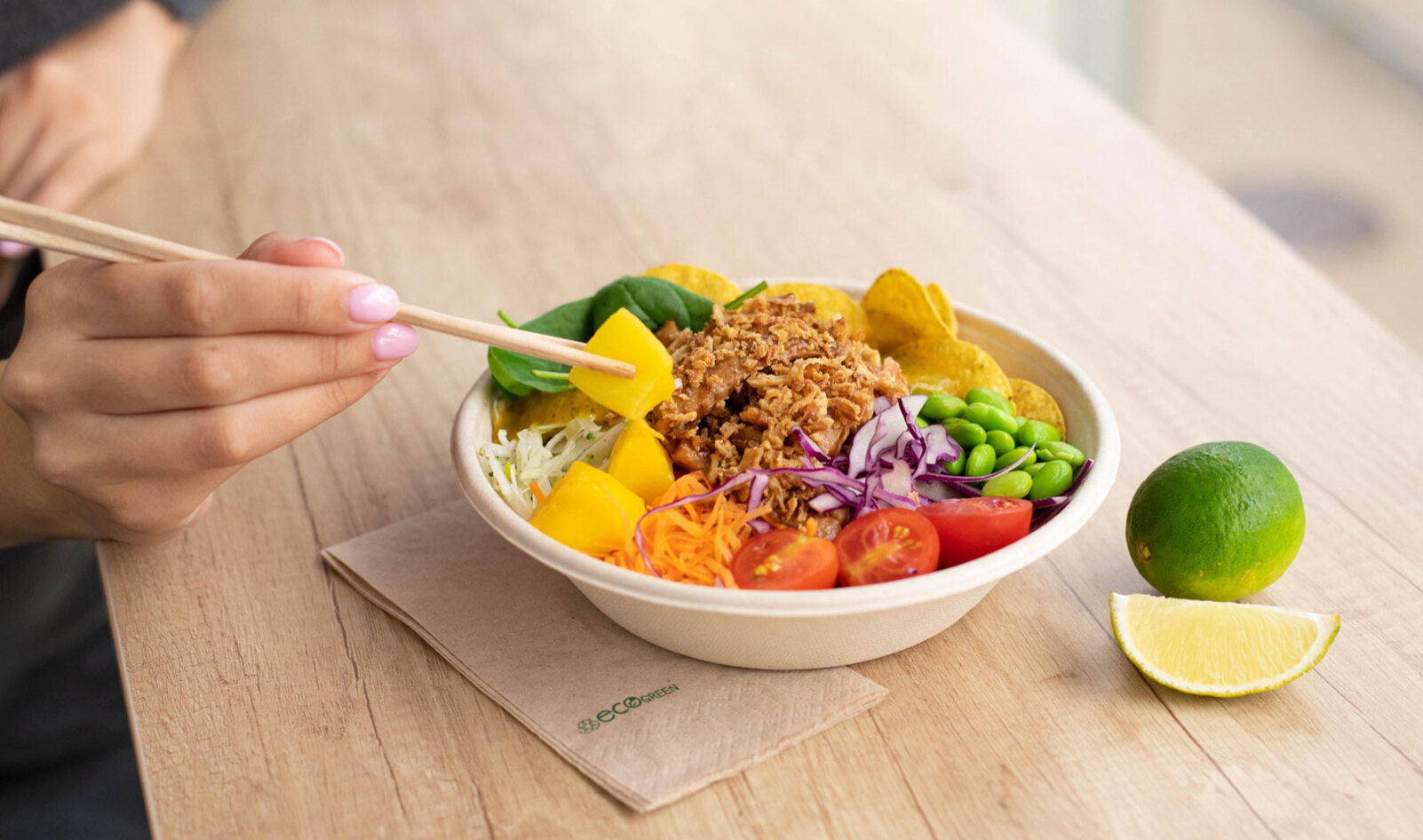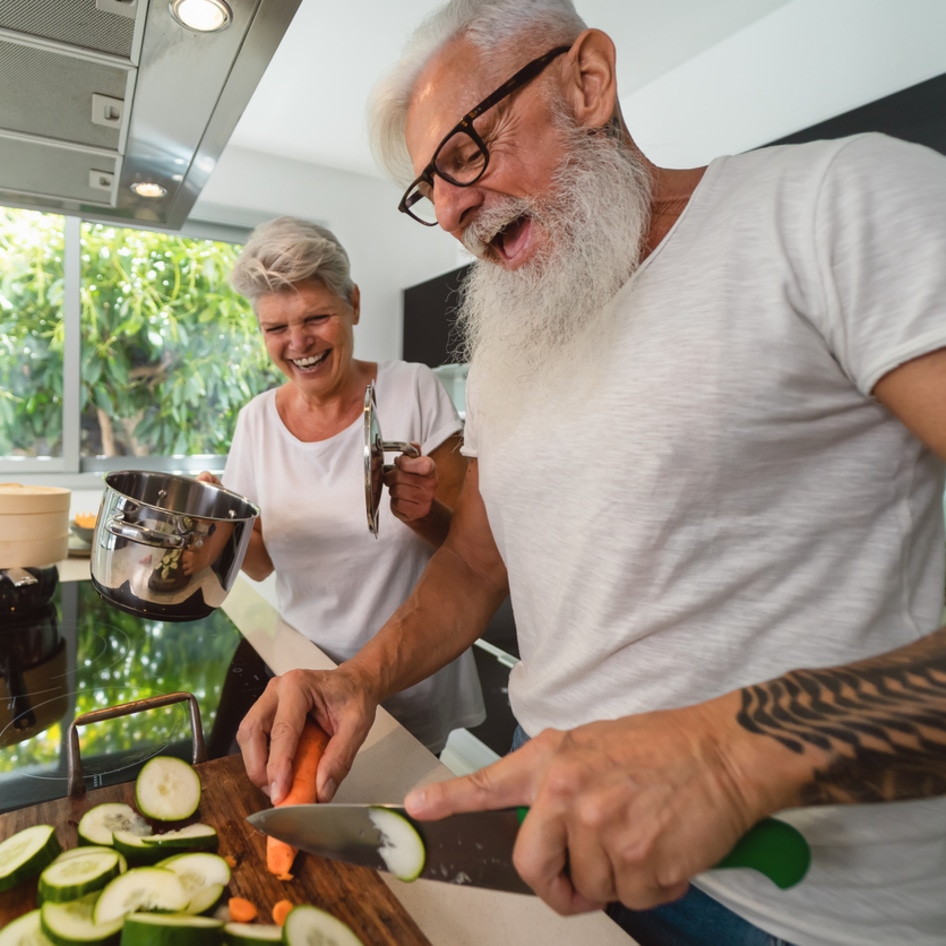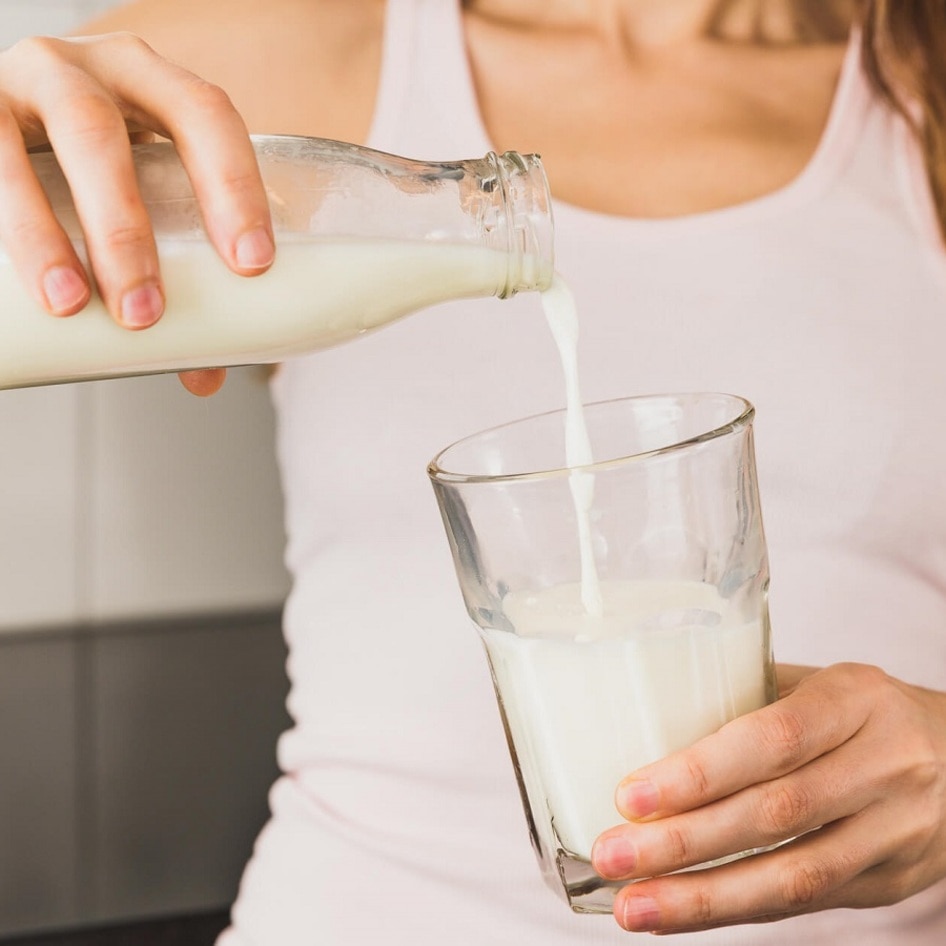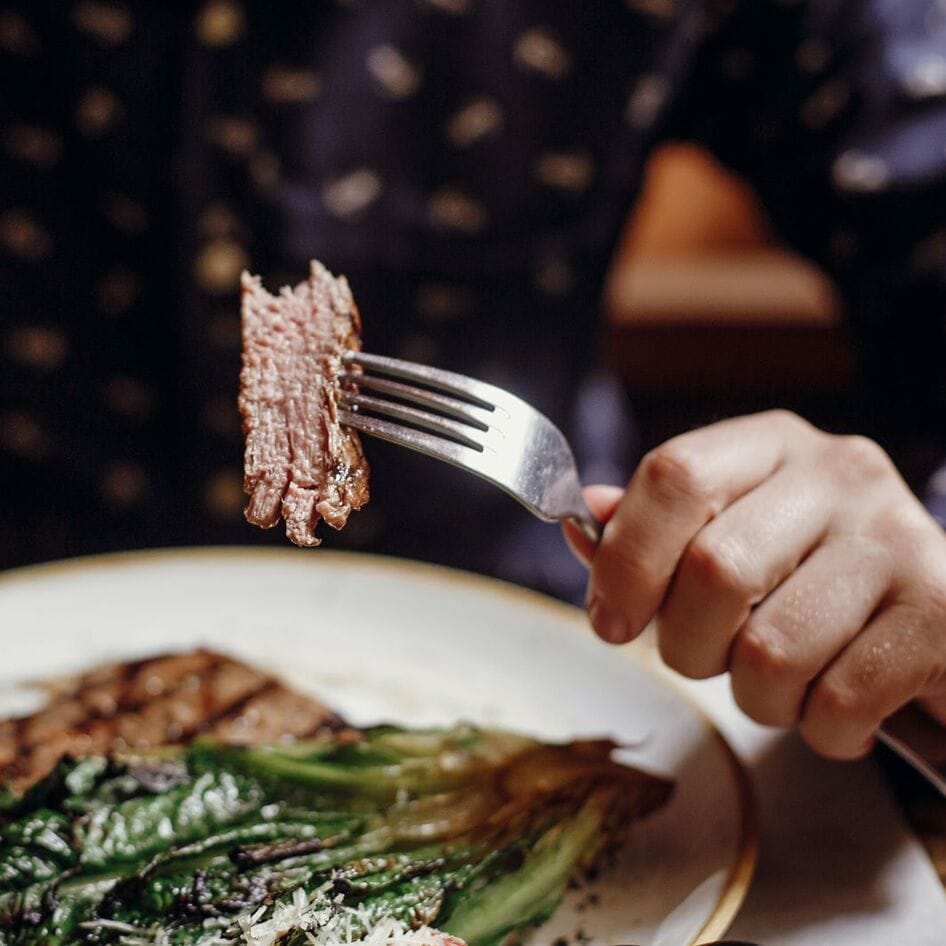Plant-based foods are growing in popularity—there’s no doubt. In the US, research in 2020 found that around 23 percent of US consumers have tried vegan meat products before. And in the same year, a different report found that a whopping 94 percent of Americans are willing to increase their consumption of plant-based foods.
Many of these people are driven by environmental concerns (animal agriculture is a big driver of emissions and deforestation), while some are worried about animal welfare (billions of animals are factory farmed around the world). But others are upping their intake of plant-based foods for their potential health benefits.
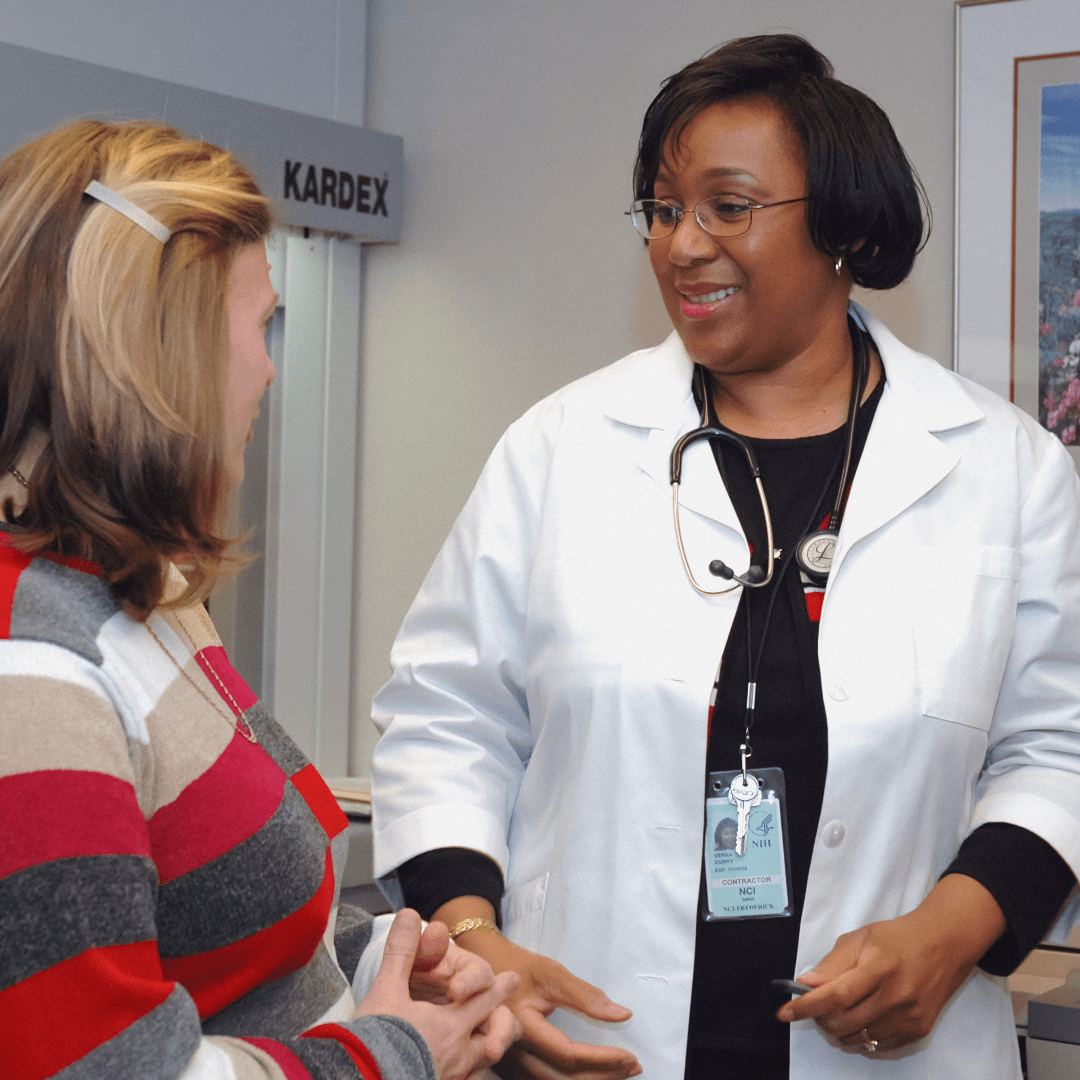 National Cancer Institute/Unsplash
National Cancer Institute/Unsplash
Many believe that following a predominantly whole-food, plant-based diet may reduce their risk of developing diseases, including certain types of cancer. And there is certainly a growing body of research that supports this thinking. But, it’s important to note, food is not a cancer cure. And there is no guarantee that just because you eat a certain way, you won’t develop cancer. But that said, Australian dietitian and doctor of food and nutrition Shy Vishnumohan, Ph.D., told VegNews that a plant-based diet can be a “valuable component” in reducing the chance of developing some types of cancer.
“Switching to a plant-based diet can be a wise choice for reducing the risk of certain cancers,” she explained. “However it is important to bear in mind that multiple factors contribute to cancer risk, including genetics, lifestyle habits, and environmental factors.”
“It’s just one part of a larger picture of wellness. Life is like a stack of cards—while there is no magic bullet that will guarantee 100-percent immunity, making healthy food choices that are plant-forward can be powerful and stack the deck in our favor,” Vishnumohan added.
But which cancers might be impacted by following a plant-based diet? We’ve looked at some of the research, and three types pop up consistently: prostate, colorectal, and breast. Here, we take a closer look at some of the studies on each.
Prostate cancer
Prostate cancer is cancer of the prostate gland, which is part of the male reproductive system that produces seminal fluid for sperm. According to the American Cancer Society, current research suggests around one in eight people with male reproductive systems will be diagnosed with prostate cancer in their lifetimes. On average, this diagnosis happens around the age of 66.
Again, currently, there is no way to completely guarantee the prevention of prostate cancer, but in general, research suggests that exercising and following a healthy diet rich in fruits and vegetables (like whole food, plant-based diet) may help to reduce the risk.
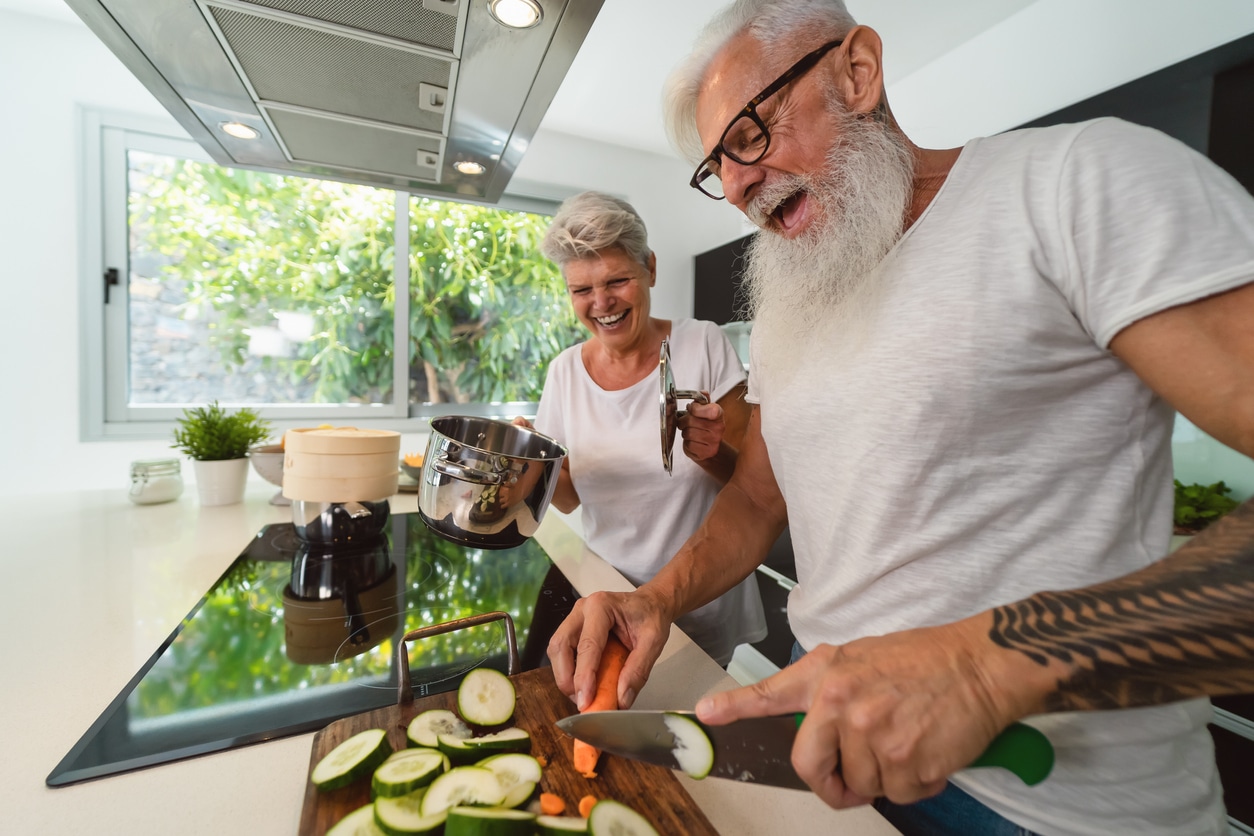 Getty
Getty
One study, published in the Journal of Urology in 2021, examined more than 47,200 males for up to 28 years and found that higher consumption of plant-based foods was associated with a lower risk of prostate cancer in people with male reproductive systems under the age of 65. However, fewer than one percent of study participants followed a strict vegetarian or vegan diet, so researchers were not able to assess the risk in those who eat zero animal products.
Another study, published in The American Journal of Clinical Nutrition in 2022, found that the regular consumption of cow’s milk could mean a 60 percent higher risk of developing prostate cancer. According to the researchers, who evaluated more than 28,700 Seventh-day Adventists for five years for the study, this could be because prostate cancer is hormone-responsive, and, of course, there are hormones in cow’s milk.
 Getty
Getty
While principal investigator Gary Fraser noted that more research is needed to prove a definitive link between dairy consumption and increased cancer risk, he also said “our findings add important weight to other evidence associating dairy products, rather than non-dairy calcium, as a modifiable risk factor for prostate cancer.”
Colorectal cancer
Colorectal cancer refers to cancer that has started in the colon or the rectum and can also be called colon cancer, rectal cancer, or bowel cancer, depending on its origin. The risk of colorectal cancer is similar for everyone, regardless of sex. According to the American Cancer Society, the risk is about one in 23 for people who have a male reproductive system and about one in 26 for people with a female reproductive system.
According to Anne Kennard, DO, FACOG, “colorectal cancer risk can be profoundly influenced by diet,” and there is much evidence to back this up. “The World Health Organization (WHO) has ranked bacon, sausage, and other cured and processed meats as group 1 carcinogens,” she explained to VegNews. “Which puts them in the same category as tobacco and asbestos.”
“WHO has also placed fresh red meat in the group 2A category, which suggests that it is probably carcinogenic to humans,” she added. “In addition, The Global Burden of Disease Project has estimated that diets high in red meat could be responsible for 50,000 cancer deaths per year worldwide.”
In 2022, another study from Tufts University and Harvard University strongly associated processed meat consumption with colorectal cancer. “Processed meats, most of which fall into the category of ultra-processed foods, are a strong risk factor for colorectal cancer,” Lu Wang, the study’s lead author, said in a statement.
“Ultra-processed foods are also high in added sugars and low in fiber, which contributes to weight gain and obesity, and obesity is an established risk factor for colorectal cancer,” she continued.
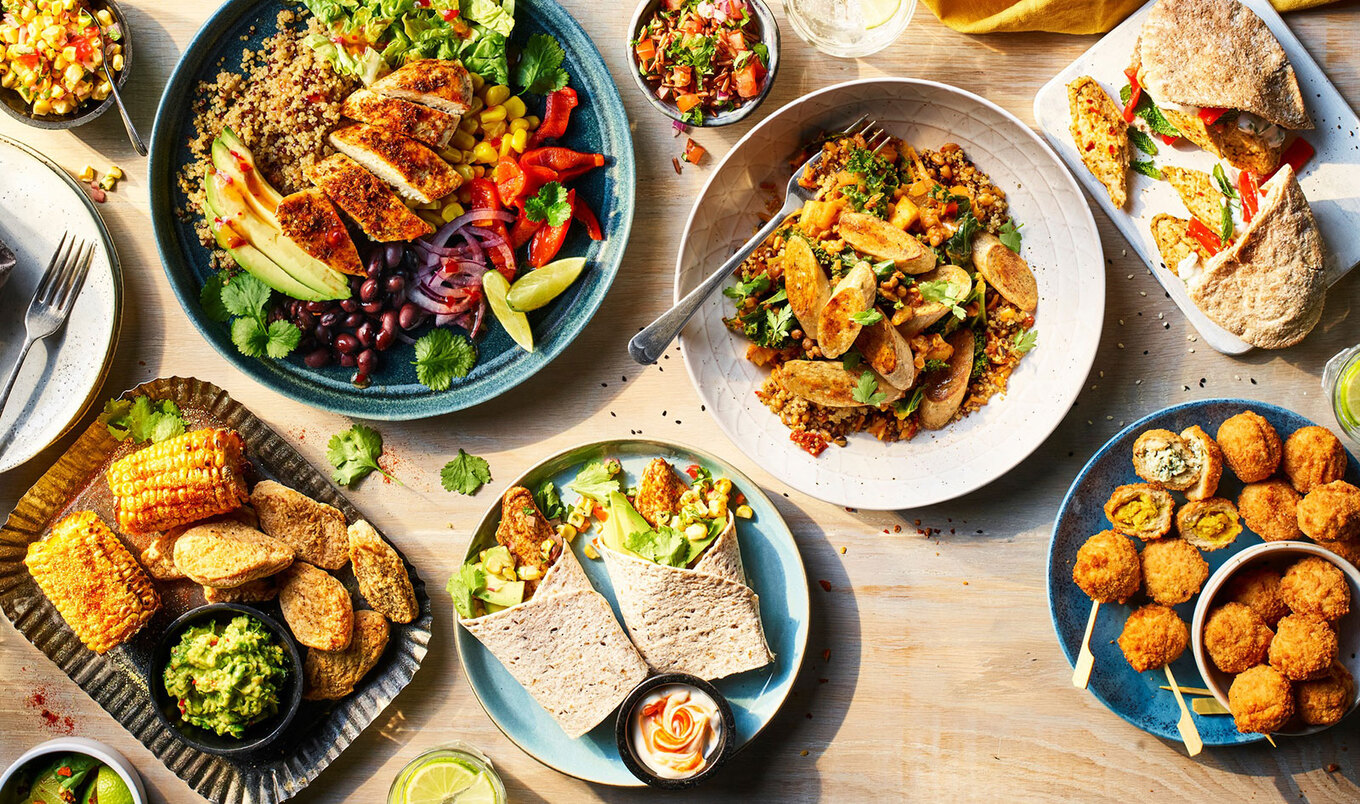 Quorn
Quorn
More recently, in February 2023, research also suggested that fungi-based vegan meat (like that from the brand Quorn, for example) may actually help to keep colorectal cancer at bay. To come to this conclusion, the study authors examined the urine and stool samples of 20 adult males between the ages of 18 and 50, once when they had consumed red and processed meat, and then again when they had swapped to fungi-based vegan meat.
“The study showed that this dietary change delivers a significant reduction in genotoxicity and an increase in beneficial gut microbes,” lead researcher Daniel Commane, PhD, said. “Our findings suggest therefore that this high-fiber protein source provides a good alternative to meat in the context of gut health and could help to reduce long-term bowel cancer risk.”
Breast cancer
Breast cancer is a type of cancer that begins in the breast. It is most common in cisgender women, but cisgender men, transgender women, and nonbinary people can also suffer from it. According to the American Cancer Society, it is responsible for about one in three female cancers, and usually, it affects people who are older than 45 (but a small number of people do still develop breast cancer before this age).
Again, as with all types of this disease, there is no miracle behavior that ensures you won’t get diagnosed with breast cancer. But limiting alcohol, regular exercise, and eating a healthy diet are some behaviors that may help to reduce your risk. “A plant-based diet can decrease the incidence of breast cancer, the most common female cancer diagnosis,” Kennard says. “With benefits specifically noted for diets including vegetables, fruits, whole grains, and legumes.”
 Getty
Getty
And there is research to back this up. In 2022, for example, one study suggested that a diet rich in fruit and vegetables may help to reduce the risk of breast cancer in postmenopausal women by 14 percent. To come up with their conclusions, the researchers (from Paris-Saclay University) tracked more than 65,000 postmenopausal people in France and their diets for more than 20 years.
“These findings highlight that increasing the consumption of healthy plant foods and decreasing the consumption of less healthy plant foods and animal foods might help prevent all types of breast cancer,” Sanam Shah, the study’s lead author, said in a statement.
For more on diet and disease, read:
JUMP TO ... Latest News | Recipes | Guides | Health | Shop

